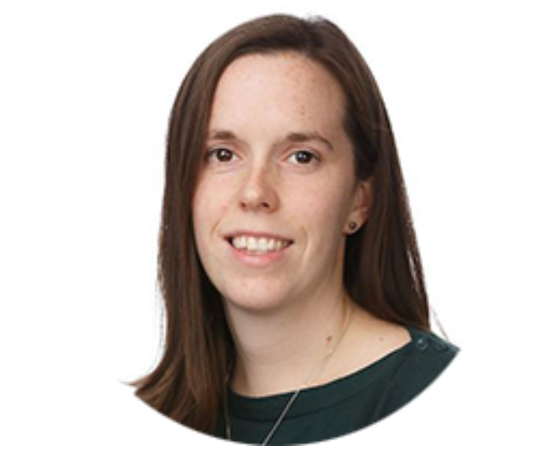Case study Overview
Work experience at a local electronics company inspired Sarah to study engineering. But it was the ELS programme that showed her how varied the profession can be, and highlighted how much she enjoys problem-solving.

A healthy interest
Sarah decided to study engineering at university after taking a women in engineering course. She enrolled on the Academy’s Year in Industry scheme, spending her ‘gap year’ working at Malvern Panalytical, a manufacturer of laboratory analytical instruments. “The Year in Industry scheme gave me a huge amount of freedom to try different things and own some projects,” she says. While there were times when she sat in meetings about scientific principles that she had not heard of, the experience came into its own at university. “When I was in maths lectures, I could see the applicability because I could remember a conversation and see that’s what was going on. It was really motivating during the course,” she says.
At university, Sarah joined the ELS programme, using her funding together with assistance from Malvern to spend three months working in China, where she took a month-long language course, met customers and created training videos for the company. “The placement was more focused on the commercial side and that was really good exposure for me. It was a fantastic experience and I learned a huge amount from it,” she says.
A move from instruments to digital healthcare
While Sarah gained valuable experience working for Malvern Panalytical before and during university, after graduating she decided to join a University of Oxford spin-out, Navetas Energy Management, which built smart meters to make itemised energy bills. “I joined that company as a researcher and became a project lead. I ran a number of different projects with them, including a fun one that involved running different appliances in my house while charging an electric car.”
In 2015 she joined Oxehealth, a startup working on vision-based patient monitoring and management. At the time, the company had just started commercialising its technology. “I became the solutions lead and looked at the overall systems architecture. We didn’t have a commercial team, so I also spent time going out to meet potential customers so I could feed their needs back to the technical team for development,” she says.
Sarah spent eight years with Oxehealth where she was promoted to vice president of engineering and then again to CTO. “I had a huge range of opportunities during my time there, from developing algorithms to leading the company’s COVID-19 response. It was deeply rewarding to grow my skills and experience alongside the business,” she says.
Other career moves
Sarah joined Global Pathogen Analysis Service (GPAS) as CTO in 2023. After building a pathogen genomic analysis platform that could identify the specific antibiotic resistance of a given sample, GPAS became the first research programme at the new Ellison Institute of Technology and was renamed EIT Pathogena. “The programme’s mission is to revolutionise infectious disease prevention and treatment on a global scale,” she says. “It was amazing to be part of that.”
She has recently joined Health Navigator, a company that uses AI to predict and prevent care needs, as CTO. “We use machine learning to predict patients who may be at risk of unplanned emergency care admissions to hospital,” she explains. “Our clinical coaches then help support those patients to reduce this risk. We are currently rolling out across North East London where we will be supporting around 11,000 patients.”
How the ELS helped...
Broader horizons: “The award gave me an insight about the broader opportunities for someone with an engineering background, which has influenced the direction of my career. Without it, I would probably have stayed on the technical side of engineering,” she says. “Part of what I discovered thorough the ELS programme is that I really enjoy solving problems – and those can be technical or organisational.”
Job prospects: I think that when I was interviewing at Oxehealth and in my first role, the ELS programme added a lot of credibility and experience when I was very early in my career. I don’t know whether project leadership roles would have been as fast to come without it.”
Lessons from workshops: “The exercises on running business were useful and helped me consider broader viewpoints of businesses while I’ve been working, which has helped me to progress in my career and take on wider roles at organisations.”
Friends: “I’ve built lasting friendships and we see each other regularly. In my last job I persuaded one ELS programme friend to come and work with me.”
Advice
Sarah believes students should apply because the ELS programme offers opportunities they might not otherwise be able to take advantage of. “The network of peers can give you inspire you to think about what you might be capable of,” she says.
Interested in participating in the Engineering Leaders Scholarship?
Visit the programme pages to find out more about how it could benefit you and your career.
